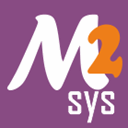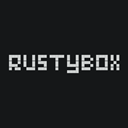Uncovering the Best BusyBox Alternatives for Your Embedded Systems
BusyBox, often hailed as "The Swiss Army Knife of Embedded Linux," is a remarkable single binary that packs a punch, providing a multitude of stripped-down Unix tools. Its efficiency and compact nature make it ideal for resource-constrained environments like embedded operating systems, Android, and various POSIX systems. It includes essential utilities such as netcat, httpd, init, grep, tar, and a sh shell, among many others. However, depending on your specific project needs, existing infrastructure, or desired feature set, you might find yourself searching for a powerful BusyBox alternative. This article explores some of the top contenders that offer similar functionality with their own unique advantages.
Top BusyBox Alternatives
While BusyBox excels in its niche, a range of robust alternatives exist, each catering to different development workflows, operating system preferences, and feature requirements. Whether you're looking for broader compatibility, a different programming language base, or a more extensive set of core utilities, there's an option for you.

Cygwin
Cygwin stands out as a powerful BusyBox alternative, especially for Windows users. It provides a Unix-like environment and command-line interface, offering seamless native integration with Windows applications and data. As a free and open-source solution, Cygwin brings a wealth of Unix tools to Windows, supporting ANSI color, command-line operations, compatibility layers, and even features like Portable Linux, Python, and SSH. This makes it an excellent choice if you need to run Unix-like commands and scripts on a Windows platform, bridging the gap between the two environments.

MSYS2
MSYS2 is another compelling BusyBox alternative specifically for Windows, serving as an independent rewrite of MSYS. Built upon modern Cygwin and MinGW-w64, it aims for improved interoperability with native Windows. As a free and open-source project, MSYS2 provides a robust command-line interface (bash) and is known for its regular updates, ensuring access to the latest tools and features. It's a strong candidate for developers looking for a more modern and integrated Unix-like environment on Windows, often used with IDEs for Windows development.

GNU Core Utilities
For those deeply rooted in the Linux ecosystem, the GNU Core Utilities (coreutils) represent a fundamental BusyBox alternative. This package of GNU software provides a comprehensive collection of basic tools essential for Unix-like operating systems, including familiar commands like `cat`, `ls`, and `rm`. As a free and open-source solution primarily for Linux, coreutils offers a complete suite of standard command-line utilities. While BusyBox focuses on extreme minimalism, coreutils provides a more feature-rich and extensive set of tools, making it a go-to for standard Linux distributions and environments where disk space is less critical.

RustyBox
RustyBox presents an intriguing and modern BusyBox alternative, being a free-range, non-GMO fork of BusyBox rewritten entirely in Rust. This open-source project aims to provide all your favorite commands like `ls`, `mount`, and `top`, but with the memory safety and performance benefits of Rust. Available for Mac and Linux, RustyBox offers a command-line interface and is designed for portable Linux environments. If you're looking for a BusyBox-like experience with a focus on modern language principles and potential security enhancements, RustyBox is an exciting option to explore.
Choosing the right BusyBox alternative depends heavily on your specific operating environment, project requirements, and desired level of functionality. Whether you need a Unix-like environment on Windows, a complete suite of standard GNU tools, or a modern re-implementation in a safe language like Rust, there's a robust solution waiting. Explore these options to find the best fit for your embedded or command-line needs.